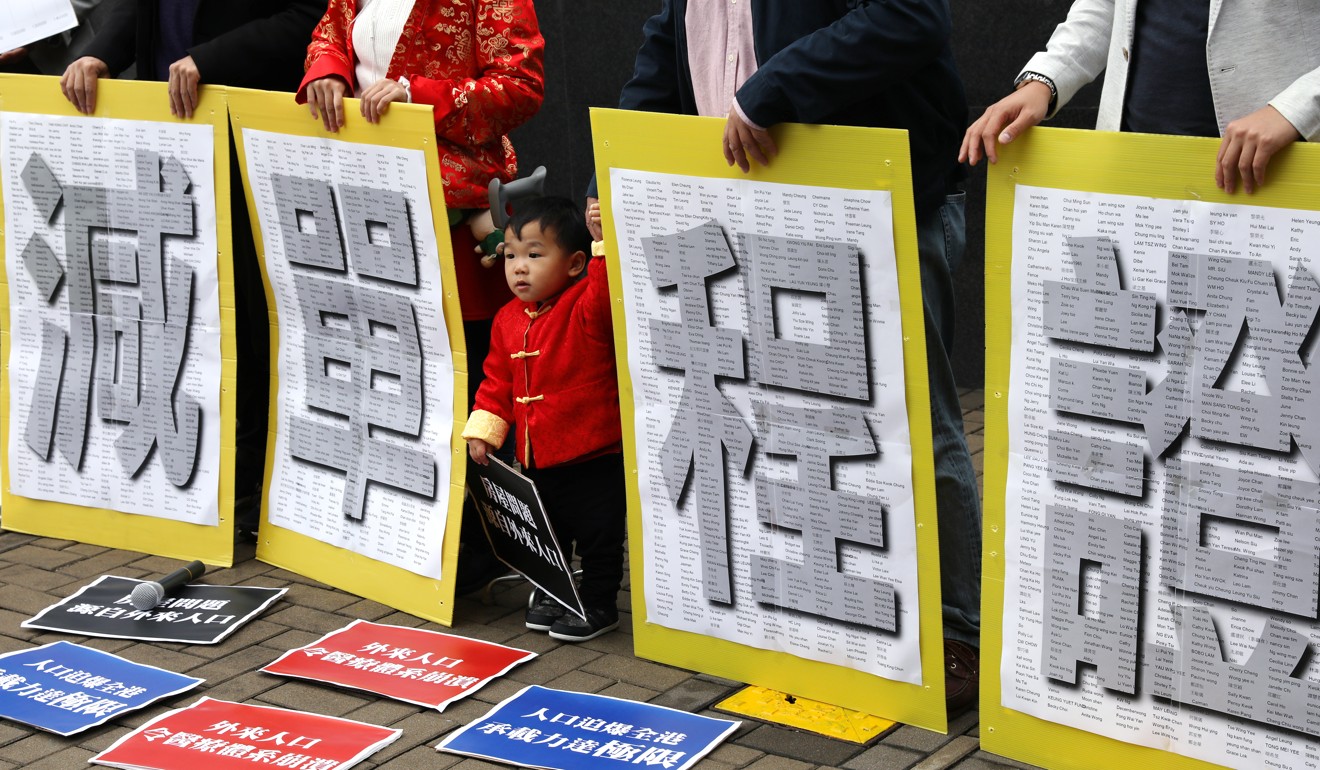
Is populism the way out and forward for Hong Kong?
- Just as spending money is no solution to the city’s social unrest, reducing the daily migration quota will not ease the animosity between Hong Kong and the mainland
- The Hong Kong government needs to find the political will and developers should focus on affordable housing as more practical and effective approaches to tackling the city’s problems
Is Hong Kong heading towards a populist society?
Not only does this government seem to be more inclined to use public money as a wishful cure for its political problems, some of this city’s elite also tend to take external factors as the source of deep-rooted social issues. More serious soul searching is needed.
There is nothing wrong with that on a practical level – after all, effective governance needs public support. But whether substantially increasing new recurrent expenditure is the way out, is something else.

‘Foreign forces’ can be a double-edged sword in tackling Hong Kong’s crisis
Kwok, a third-generation heir to his family business empire, was attending an annual meeting in Guangzhou as a member of the standing committee of the provincial Chinese People’s Political Consultative Conference, a position that allows him to give advice to Guangdong authorities.
While it might have been a well-intended suggestion to ease the social resources burden on Hong Kong, the younger Kwok touched a red-hot political potato – the quota system, known as the “one-way permit” arrangement. Introduced in the 1980s, the system has become a bone of contention in recent years with intensified cross-border tensions.

The scheme started with the daily quota set at 75, as agreed upon by the colonial British government of Hong Kong and Beijing decades ago, but the number was increased to 150 in 1995, with cross-border marriages growing significantly at the time.
Hong Kong in 2020: hopeful or hopeless new year?
What has upset many Hongkongers all these years is that the city has no say in deciding any adjustment to the quota, since the permits are issued by the mainland side.
It is not ideal at all that Hong Kong, being on the receiving side, has no say whatsoever. But it is also politically naive to believe that cutting down the quota will help Hongkongers, young people in particular, to “see and feel the care of the central government”, as suggested by Kwok.

Two latest sets of figures released by the National Bureau of Statistics over the weekend were quite telling: China’s population, excluding Hong Kong, Macau and Taiwan, exceeded 1.4 billion but the country’s birth rate dropped to a nearly 60-year low; and China’s per capita GDP for the first time exceeded US$10,000 in 2019.
It should not be surprising to see fewer mainland relatives of Hongkongers wishing to settle in this city in the future, given the lower birth rate and higher income across the border. But the two sides now share one headache – an ageing society.
The daily migration quota of 150 is part of a bigger population policy for both sides to further explore, instead of merely making assumptions about resources being depleted.
The Hong Kong government needs to find the political will and courage to end the current turmoil, just as the city’s developers have to build more affordable housing.
That would definitely be a more practical and effective approach to tackling our problems, especially when it comes to addressing young people’s grievances and meeting their aspirations.

